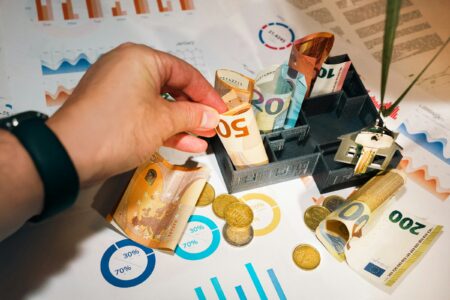26.03.2022
The end of 2021, the real estate sector of Cyprus met without major changes. Locally oriented budget housing in the region of €300,000-€500,000 was in good demand and rising in price, while the drop in prices for more expensive apartments was primarily due to the termination of citizenship abroad, some investments, the CIP program, gold passports with major victims (Limassol and Paphos), as well as marina and golf projects.
So, what’s in store for the Cyprus property sector this year?
The war in Ukraine affected demand from Russia as well as from Ukrainians (who were the fastest growing new market).
We see that not only demand has dropped sharply, but some owners from these two countries are also putting their properties up for sale. Much of this effect will depend on the duration of the situation and the sanctions imposed by the West, the EU and member states such as Cyprus.
This leads to a reduction in tourism, which leads to interest in real estate, which will be halved this year.
Rising inflation and petrol prices, which have resulted in an increase in the cost of travel, the cost of materials, which has risen by about 10% in recent months (of the total cost of construction), as well as the cost of living, make living in Cyprus less affordable. Interest rates will rise, making loans more expensive despite the subsidies given to local residents’ interest rates. As if that weren’t enough, we have a presidential election in 2023 and political parties have already started their bidding offering packages that create uncertainty and volatility in the market.
What needs to be addressed is the expected charge of VAT with the current levying rate of 19% VAT on housing units up to 200 sq.m., which is now proposed to be reduced to the first 140 sq.m., provided that the total area does not exceed 200 sq.m. .m
There is also the question of how to deal with previous buyers before a new proposal, which is already under discussion, is accepted.
This will affect the market for both local residents and foreign buyers, shifting demand towards second-hand houses (they are not subject to VAT), which will lead to an increase in their value.
Alternative markets
We are currently targeting other tourism markets (which we expect to help boost demand for local property) such as Germany, Denmark and the Lower European countries, while the Baltics should also be seriously considered.
Entering these markets is not easy. At the same time, countries such as Israel, Lebanon and the Arab world should be targeted, while Iran is a potential market source that cannot be ignored, despite the current sanctions against this country.
The contribution of real estate to the GNP of Cyprus is about 5%, so attracting more or other foreign clients to recover losses is not an easy task.
Unfortunately, we live in a global economy, and the economic or other situation in one country affects others. We hear lawyers and accountants complaining that they are losing business from their foreign (mostly Russian) clients. This is bound to have an impact on the local market, both in terms of renting and buying, as these firms employ over 5,000 highly paid employees, predominantly in Limassol and Paphos. We will also have to wait and see the results and side effects of the pandemic this year.
I am disappointed by the lack of response from the Home Developers Association, which has to negotiate so early with the government through our embassies to launch a charm offensive to attract buyers from new markets. We have lost most of the UK market to Brexit and now also to Russians and Ukrainians.At the same time, I also note that some countries simply do not like us, as in the case of German tourists in Cyprus, which number about 200,000, while Crete has 2 million visitors.
For those who want to delve into the details of the Cypriot real estate market, a very interesting report was recently published by PwC’s Big Four auditors in February, which provides an overview of the economic and real estate situation.
We have good economic indicators:
1) The expected improvement in GDP according to the IMF by ± 5% (let’s save the Ukrainian situation).
2) Unemployment at 7.5%.
3) Recent issuance of oversubscribed government bonds with an interest rate of 0.95%.
4) Real estate transactions increased by 26% in 2021, while high end value properties decreased by 5%.
So, in 2022, we will face many uncertainties, to the extent that it is worrying, and this despite the various public and other infrastructure projects underway that will increase the attractiveness of Cyprus.
















